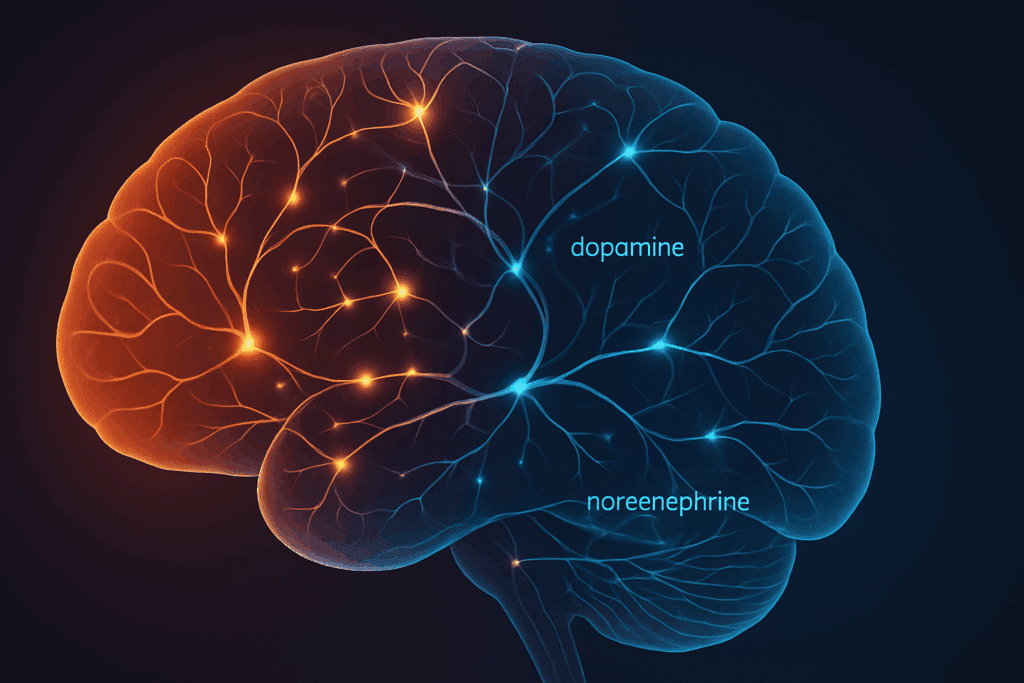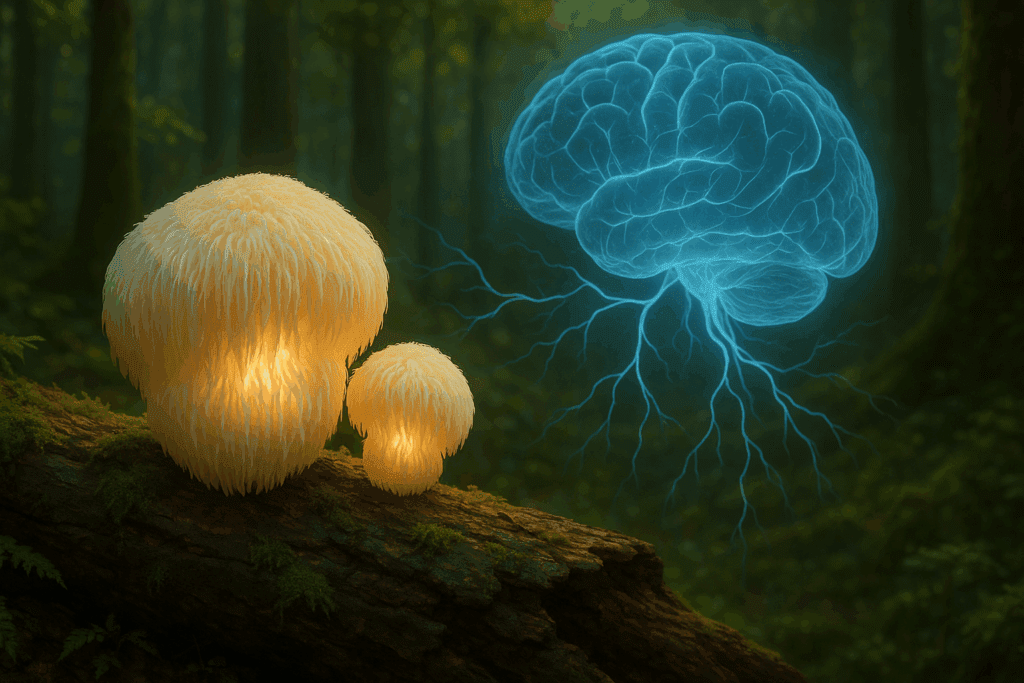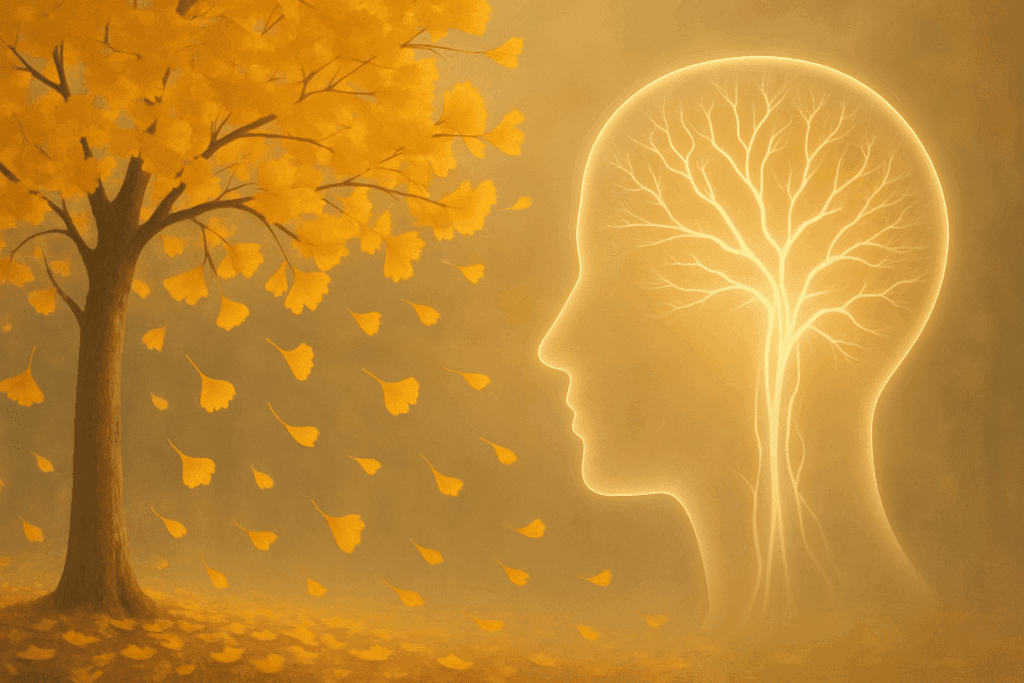Attention Deficit Hyperactivity Disorder (ADHD) is not a one-size-fits-all condition. It affects millions globally, manifesting in various forms—ranging from inattentiveness and impulsivity to hyperactivity and executive function challenges. While conventional treatments like stimulant medications and behavioral therapy have long dominated the conversation, there is growing interest in complementary and natural alternatives that may help support focus, memory, and cognitive clarity. Among these, herbal and nutritional remedies stand out, not only for their rich cultural histories but also for the mounting scientific exploration into their potential cognitive benefits.
You may also like: How Lion’s Mane Supplements May Support ADHD and Cognitive Clarity: What Science Says About Lions Mane for Focus and Brain Health
As people increasingly turn toward holistic and integrative health solutions, many wonder: Is there a best herb for ADHD? What does the science say about natural cognitive enhancers? And how can vitamins or synergistic compounds—such as those that enhance the effects of other substances like magic mushrooms—play a role in this equation? This article unpacks the evidence-based potential of herbs and nutrients that may naturally support attention, focus, and memory. It is crafted for the inquisitive, health-literate reader seeking substance, not sensationalism.

Understanding ADHD and the Brain’s Neurochemical Terrain
Before delving into specific herbs, it’s essential to understand how ADHD affects the brain. ADHD is primarily associated with irregularities in dopamine and norepinephrine—neurotransmitters crucial for attention regulation, motivation, and executive function. These chemical messengers influence areas like the prefrontal cortex, which governs planning, impulse control, and working memory. Dysregulation in these pathways often contributes to the hallmark symptoms of ADHD.
Herbal compounds that interact with dopaminergic and adrenergic systems—without overstimulating the nervous system—may provide subtle, sustained cognitive support. Many of these herbs have been studied not just for ADHD but for broader applications in memory enhancement, stress reduction, and neuroprotection. Their multi-targeted actions make them intriguing candidates for those seeking non-pharmaceutical options.

Bacopa Monnieri: The Ancient Nootropic for Mental Sharpness
Bacopa monnieri, an herb revered in Ayurvedic medicine, is widely studied for its cognitive-enhancing effects. Rich in bacosides—bioactive compounds that support synaptic communication—Bacopa is believed to enhance memory retention, learning, and mental processing. Research suggests that it may help modulate dopamine and serotonin levels, which are critical in ADHD symptomatology.
In clinical trials, Bacopa has shown promise in improving attention and reducing impulsivity in children and adults with ADHD. One study published in Advances in Mind-Body Medicine reported notable reductions in restlessness and improved self-control among children after a 12-week Bacopa regimen. Unlike stimulants, Bacopa works subtly over time, requiring consistent use for optimal results. It also exhibits antioxidant properties, helping to protect neurons from oxidative stress—an often-overlooked factor in neurodegenerative and cognitive disorders.
Ginkgo Biloba: Enhancing Circulation and Cognitive Clarity
Another botanical with significant nootropic potential is Ginkgo biloba. This ancient tree’s fan-shaped leaves contain flavonoids and terpenoids that support cerebral blood flow and neuroplasticity. Improved circulation to the brain can enhance alertness and focus, both of which are typically compromised in individuals with ADHD.
Studies have found that Ginkgo biloba may improve attention span, processing speed, and working memory—especially when combined with other cognitive enhancers. For example, when paired with Ginseng or phosphatidylserine, Ginkgo’s benefits may be amplified. It’s also worth noting that Ginkgo may play a supporting role when used alongside other natural or psychedelic compounds, such as magic mushrooms. Understanding what vitamin in addition to enhances magic mushrooms can deepen Ginkgo’s synergistic value, particularly in neurocognitive settings.
While Ginkgo is generally well-tolerated, its blood-thinning effects necessitate caution among individuals on anticoagulant medications. As always, consulting a healthcare provider is critical before incorporating it into any regimen.

Rhodiola Rosea: Balancing Energy, Mood, and Attention
A powerful adaptogen, Rhodiola rosea has long been used to combat fatigue, improve stamina, and enhance mental performance under stress. Its key compounds—rosavins and salidroside—appear to influence dopamine and serotonin balance, aligning with the neurochemical imbalances observed in ADHD.
Research in Phytomedicine and other peer-reviewed journals has highlighted Rhodiola’s potential in reducing mental fatigue and supporting sustained attention. While not traditionally used as a primary ADHD treatment, its adaptogenic profile makes it a compelling adjunct, especially for individuals whose attention issues are worsened by stress and burnout.
Moreover, Rhodiola may contribute to a more balanced neurochemical terrain when used in conjunction with other cognitive-enhancing agents. When exploring what vitamin enhances magic mushrooms or supports the serotonergic system, Rhodiola’s role becomes even more interesting, particularly in the context of natural stacks and biohacking communities.
Lion’s Mane Mushroom: The Nerve Growth Stimulator
Lion’s Mane (Hericium erinaceus) is another natural remedy gaining attention for its neurological benefits. This medicinal mushroom is unique in that it contains compounds like hericenones and erinacines, which stimulate the synthesis of nerve growth factor (NGF). NGF plays a pivotal role in the maintenance and regeneration of neurons, which is especially relevant for individuals with cognitive dysfunction or neurodevelopmental conditions like ADHD.
Animal studies and early clinical research suggest that Lion’s Mane may improve focus, memory, and mood. It is often included in nootropic stacks aimed at long-term brain health. Its gentle yet profound effects make it an ideal candidate for daily supplementation.
Furthermore, Lion’s Mane is often paired with other compounds in psychedelic microdosing protocols. Understanding what vitamin enhances magic mushrooms is vital in these protocols, as the combination of neurotrophic, adaptogenic, and serotonergic agents can lead to enhanced outcomes in cognitive performance and emotional regulation.

Omega-3 Fatty Acids: Foundational Nutrients for Brain Structure
Though not an herb, omega-3 fatty acids deserve a place in any discussion on ADHD and natural treatments. DHA and EPA—long-chain fatty acids abundant in fish oil—are essential for neuronal membrane integrity and synaptic plasticity. Numerous studies have linked low omega-3 levels to ADHD symptoms, and supplementation has shown modest but consistent improvements in focus, impulsivity, and hyperactivity.
Omega-3s may also enhance the bioavailability and efficacy of herbal and mushroom-based supplements. In protocols involving nootropics or natural psychedelics, understanding what vitamin in addition to enhances magic mushrooms includes not just vitamins per se, but also synergistic nutrients like fatty acids. Their role in modulating inflammation, supporting neurotransmission, and promoting overall neural function makes them indispensable in holistic ADHD management.

Frequently Asked Questions: Best Herb for ADHD and Cognitive Clarity
1. Can herbal remedies for ADHD be combined with conventional medication?
Yes, many individuals explore integrative approaches to ADHD by combining natural herbs with traditional stimulant medications. However, this should only be done under the supervision of a qualified healthcare professional, as certain herbs—such as Ginkgo biloba—may interact with medications like methylphenidate or amphetamines. A noteworthy consideration is the additive effects of supplements and vitamins that enhance neurotransmitter activity. For example, when evaluating what vitamin in addition to enhances magic mushrooms or synergizes with nootropics, B vitamins often come into play due to their influence on dopamine metabolism. Whether paired with medication or not, it’s essential to monitor cognitive, behavioral, and mood changes closely during any new supplementation phase.
2. How do individual genetic differences affect herbal supplement responses in people with ADHD?
Genetic polymorphisms—variations in genes that regulate neurotransmitters such as dopamine or serotonin—can significantly influence how an individual responds to herbal interventions. For instance, people with variations in the COMT gene may metabolize dopamine differently, which can change their reaction to herbs like Rhodiola or Bacopa. Likewise, genes related to methylation pathways may determine how well someone benefits from specific B vitamins, which are often discussed in the context of what vitamin enhances magic mushrooms and other adaptogenic compounds. Personalized supplementation plans based on nutrigenomics are emerging as a forward-looking strategy in ADHD treatment. Genetic testing, while still developing in affordability and accessibility, could one day become a routine tool for fine-tuning herbal regimens.
3. Are there specific lifestyle habits that improve the effectiveness of natural ADHD remedies?
Absolutely. Sleep hygiene, physical activity, and a diet rich in essential fatty acids and antioxidants can amplify the effects of herbal supplements for ADHD. Regular exercise, in particular, boosts dopamine and norepinephrine naturally—creating a neurochemical environment where herbs like Lion’s Mane and Rhodiola may function more effectively. Moreover, micronutrient sufficiency plays a critical role. Understanding what vitamin in addition to enhances magic mushrooms often leads people to evaluate their intake of magnesium, zinc, and the full B complex. Consistent lifestyle optimization enhances both the pharmacokinetics and perceived benefits of any natural treatment strategy.
4. What role does the gut-brain axis play in herbal approaches to ADHD?
The gut-brain axis—the bidirectional communication between the gastrointestinal tract and central nervous system—has increasingly been implicated in ADHD pathophysiology. Herbal remedies like Lion’s Mane may influence this axis by modulating gut microbiota or reducing intestinal inflammation, which in turn affects neurochemical signaling. Some studies have shown that prebiotics and certain vitamins, including those often cited when researching what vitamin enhances magic mushrooms, can promote gut-derived serotonin and dopamine production. This is particularly important for people with ADHD who experience gastrointestinal comorbidities like IBS or food sensitivities. Pairing gut-supportive herbs with probiotics and vitamin cofactors may offer multidimensional benefits.
5. Are there specific age groups that respond better to herbal ADHD support?
While research is ongoing, adolescents and adults with mild to moderate symptoms often report the most noticeable improvements from herbal interventions. Children can benefit as well, but dosage and safety considerations require greater scrutiny. Adult users frequently explore stacking herbs with nootropics or even microdosing protocols, especially when exploring what vitamin in addition to enhances magic mushrooms for extended cognitive performance. Age-related differences in metabolism, hormone levels, and stress reactivity also shape how a body utilizes plant-based compounds. Therefore, age-specific formulations or titrated dosages can optimize both safety and efficacy.
6. What are the long-term effects of using herbal remedies for ADHD?
Long-term use of herbal supplements for ADHD is generally considered safe when guided by periodic health evaluations and expert consultation. Unlike pharmaceutical stimulants, herbs like Bacopa and Lion’s Mane are more likely to offer neuroprotective benefits over time by supporting neuronal plasticity and reducing oxidative stress. However, nutrient co-supplementation remains essential for maintaining efficacy. For example, when considering what vitamin enhances magic mushrooms or what vitamin in addition to enhances magic mushrooms for brain health, sustained B complex intake ensures continuous support of neurotransmitter synthesis. Monitoring liver function and nutrient levels annually is a prudent practice for long-term herbal users.
7. How do gender differences influence the choice of herbal ADHD treatments?
Hormonal fluctuations—especially in women—can dramatically affect both ADHD symptoms and how one responds to herbal treatments. For instance, Rhodiola may better suit women during the luteal phase of the menstrual cycle, while men may respond more robustly to Ginkgo due to vascular benefits. Research on what vitamin enhances magic mushrooms has also begun to investigate whether gender-based variations in methylation or serotonin synthesis affect outcomes from microdosing or natural stacking protocols. Tailoring herbal strategies based on hormonal cycles, stress thresholds, and lifestyle demands can significantly improve treatment precision. Gender-specific studies, though still limited, are a promising avenue for future research.
8. Can herbal supplements help with emotional regulation in ADHD beyond focus and memory?
Yes, many herbs offer adaptogenic or anxiolytic properties that can stabilize mood and emotional reactivity—core challenges for people with ADHD. Rhodiola, for example, modulates the hypothalamic-pituitary-adrenal (HPA) axis and may reduce cortisol spikes under stress. Ginkgo has shown potential in lowering anxiety, and Bacopa is often cited for its mood-stabilizing qualities. Adding nutritional support, especially when exploring what vitamin in addition to enhances magic mushrooms, may further amplify emotional resilience. Complex B vitamins, magnesium, and vitamin D3 contribute to balanced emotional functioning and are often used in tandem with herbal protocols.
9. Are there any risks associated with combining multiple herbs or stacking them with vitamins?
Yes, while stacking herbs can yield synergistic benefits, it also increases the risk of side effects or interactions. Combining Ginkgo and Rhodiola, for example, might overly stimulate some individuals or lead to mild gastrointestinal discomfort. To minimize risks, it’s crucial to start with single-ingredient trials and gradually introduce additional herbs or vitamins. Careful consideration should also be given to compounds known for their psychoactive synergy. When exploring what vitamin enhances magic mushrooms in stacking routines, one must account for the cumulative effects on serotonin, dopamine, and acetylcholine pathways. Consulting with a healthcare provider ensures a safe, personalized approach.
10. What emerging research areas are most exciting in the natural treatment of ADHD?
Several emerging fields are reshaping the landscape of natural ADHD treatment. These include precision psychiatry using AI to match herbs to individual profiles, and the integration of psychobiotics that blend nootropics with gut-friendly bacteria. Additionally, ongoing studies on what vitamin enhances magic mushrooms are uncovering links between vitamin B6, methylfolate, and enhanced neuroplasticity during microdosing. Researchers are also investigating plant-derived compounds that mimic pharmaceutical actions without the dependency risks. As the scientific community continues to validate these approaches, we may soon see evidence-based, customized herbal protocols as a mainstream alternative to conventional medication.

The Role of B Vitamins in ADHD and Mushroom Synergy
B vitamins, especially B6, B9 (folate), and B12, are crucial for neurotransmitter synthesis and methylation processes. These vitamins help convert homocysteine to methionine—a vital reaction in maintaining brain health. Several studies have suggested that individuals with ADHD often have suboptimal levels of B vitamins, leading to diminished focus and increased irritability.
When discussing what vitamin enhances magic mushrooms, B vitamins frequently surface as key players in optimizing psychedelic experiences and post-experience integration. Their role in serotonin and dopamine production can complement the serotonergic activity of psilocybin, potentially amplifying the cognitive benefits while reducing the likelihood of adverse reactions.
For non-psychedelic users, B complex supplementation may still provide notable advantages. Many people report enhanced clarity, reduced brain fog, and improved mood regulation—effects that are particularly desirable for those with ADHD. Integrating B vitamins into a natural stack that includes herbs like Bacopa or Rhodiola may yield a comprehensive cognitive support system.
Was this article helpful? Don’t let it stop with you. Share it right now with someone who needs to see it—whether it’s a friend, a colleague, or your whole network. And if staying ahead on this topic matters to you, subscribe to this publication for the most up-to-date information. You’ll get the latest insights delivered straight to you—no searching, no missing out.


